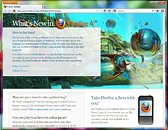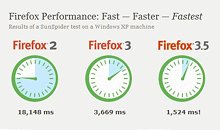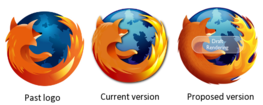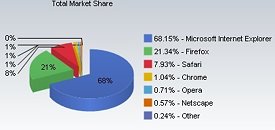
Firefox 10 Beta Available for Download
Since it already got its holiday present, the new three-year search agreement with Google, Mozilla has went into a gift-giving mode and served up the first public beta build of the next Firefox release, version 10.0.
According to the developers, Firefox 10 comes with Full Screen APIs (so web apps can run in full screen mode), with support for CSS3 3D-Transforms and WebGL Anti-Aliasing, and an added HTML5 treat, the < bdi > element for bi-directional text isolation.
The beta also includes a forward button which stays hidden until you navigate back, an Inspect tool with content highlighting, IndexedDB APIs, and a few fixes. Just like its predecessors, the Firefox 10.0 beta is available for Windows, Mac OS and Linux. The download links can be found here.
According to the developers, Firefox 10 comes with Full Screen APIs (so web apps can run in full screen mode), with support for CSS3 3D-Transforms and WebGL Anti-Aliasing, and an added HTML5 treat, the < bdi > element for bi-directional text isolation.
The beta also includes a forward button which stays hidden until you navigate back, an Inspect tool with content highlighting, IndexedDB APIs, and a few fixes. Just like its predecessors, the Firefox 10.0 beta is available for Windows, Mac OS and Linux. The download links can be found here.















